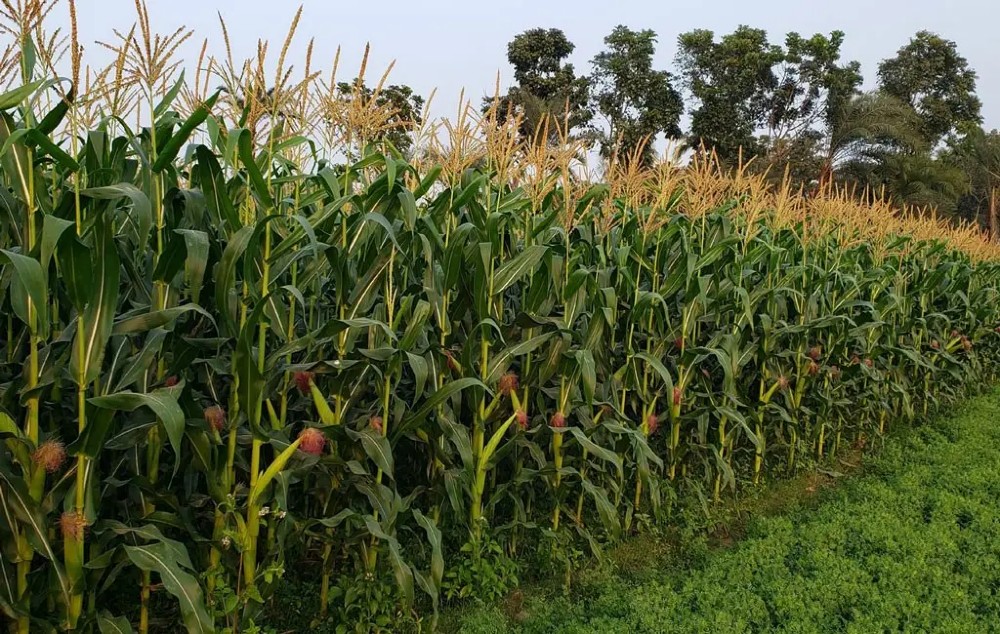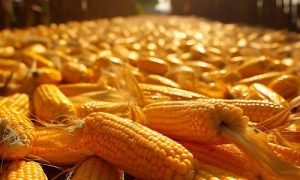Strategie Grains raises EU maize and wheat crop estimates again

PARIS, Oct 12 (Reuters) – Consultancy Strategie Grains has increased its estimates for this year’s European Union soft wheat and maize harvests for a second month in a row but trimmed its EU barley crop estimate to keep it well below last year’s level.
The biggest revision was for maize production, which Strategie Grains now sees reaching 60.6 million metric tons, up 1 million from its September forecast and 8.2 million above the drought-hit 2022 crop, the French firm said in a cereal report.
Good overall maize yields were expected, supported by favourable prospects in France, central Europe and Poland, offsetting disappointing harvests in Bulgaria and Romania, it said.
However, the EU maize harvest, still in progress, was projected to fall short of the average of the past five years due to a smaller planted area, suggesting a “delicate equilibrium” in supply that would require high imports again this season, Strategie Grains added.
For soft wheat, the consultancy raised its 2023 production estimate to 125.6 million tons from 125.0 million projected last month.
The new crop was now pegged marginally above the 2022 volume but higher than the five-year average, leading Strategie Grains to anticipate “comfortable” EU stocks at the end of the current 2023/24 season.
The stocks outlook, though, would depend significantly on EU wheat export trends. While French prospects have been boosted by sales to China, Polish, Baltic, and German origins continued to face competition from Russia, Strategie Grains said.
EU wheat supply may also be bolstered by more large imports from Ukraine this season, depending on the functioning of trade routes from the war-torn country, it said.
Strategie Grains trimmed its estimate of this year’s EU barley harvest to 47.2 million tons from 47.4 million anticipated last month and 8% below last year’s level.
Barley production prospects have been dented by severe drought in Spain as well as dryness in Nordic countries.
The poor harvest was expected to lead to low EU stocks, with the bloc needing to boost imports and curb exports to balance supply, it said.
It added that German exports were slowing due to Russian competition while French shipments were being sustained by strong Chinese demand.
(Reporting by Gus Trompiz; editing by Jason Neely)
((gus.trompiz@thomsonreuters.com; +33 1 49 49 52 18; Reuters Messaging: gus.trompiz.thomsonreuters.com@reuters.net))

















